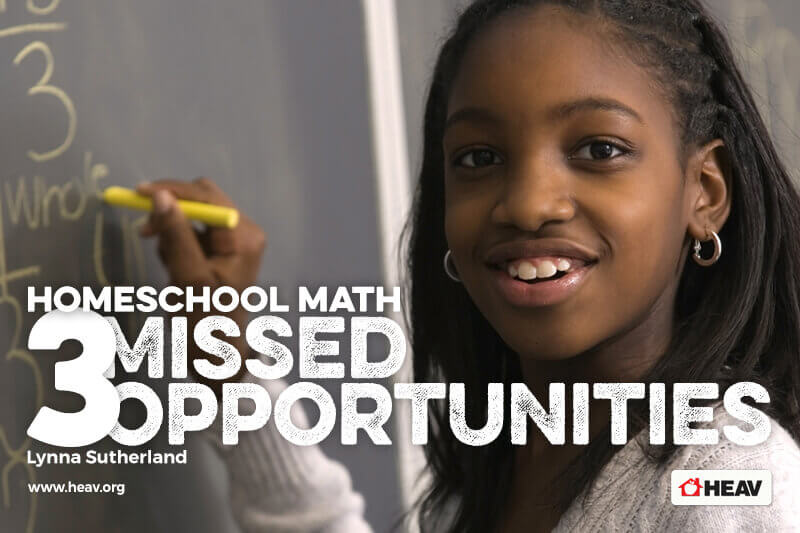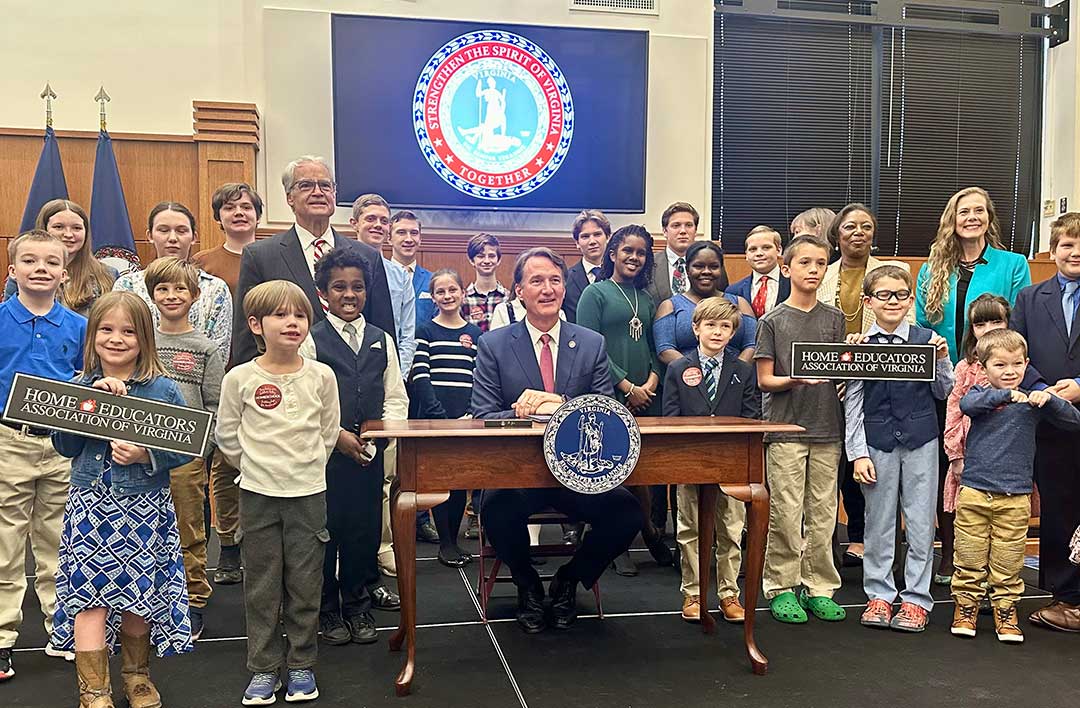Homeschool Math: Three Missed Opportunities
by Lynna Sutherland
Teaching homeschool math can feel so overwhelming. I hear from moms all the time who are anxious that maybe their kids are missing out because they don’t feel like great mathematicians. Today, I want to share with you just three simple ideas.
These are ideas anyone can incorporate into a homeschool math program. It doesn’t matter what curriculum you are using. It doesn’t matter the level of math instruction you are tackling. And it doesn’t even matter your level of skill or comfort with mathematics! Take advantage of these three opportunities and just see what happens.
The Opportunity of Not Knowing
Homeschool moms sometimes worry that they won’t know the math that they are supposed to be teaching to their children. And I’m sure you’ve heard or read some reassuring things about how that’s OK, and you can learn alongside your child, etc.
I’d argue that finding yourself in a spot where you don’t know something is more than OK. It can even be a great opportunity! If we want our children to be lifelong learners then we are going to have to model this for our students. Don’t be afraid to let them see that there is something you don’t know, and then let them watch how you go about finding it out.
Recently I needed to teach my two oldest about dividing fractions. I know the traditional method says to just take the reciprocal of the second number and then multiply, but it really bothered me to teach that when I had no idea why that worked or was a good method. (Note: Homeschool mom Amy Sloan just recently did a fantastic video for Homeschooling without Training Wheels about this exact topic called “The Well-Chosen One”!)
I jumped on YouTube (thank God for YouTube, right?) and found a cool video. It was like a lightbulb moment, but for mama. I was so excited! I couldn’t wait to show the kids and explain it to them. You know what their reaction was? Well, let’s just say it was somewhat less enthused than mine. But you know what else? That didn’t matter. They don’t have to have the same level of enthusiasm about the same topics. They just have to see that I’m still learning and enjoying it!
The Opportunity of Getting it Wrong
It can be so frustrating for kids to find out that they got the wrong answer to a math problem. It can be so frustrating to a parent to check a math paper and find out that math time isn’t over after all, because there are corrections that need to be made. And for some kids, making a mistake feels like such a failure and a condemnation.
But there’s another way to talk about finding and correcting mistakes. It takes a certain kind of brain power and thought process to complete a math problem. But it takes another kind to work backwards to find errors and fix them. You talk about strategies for solving problems. Do you talk about strategies for finding errors and correcting them?
Kids often have the incorrect assumption that you are either “born” able to do math or you aren’t. While it’s certainly true that everyone has a different level of gifting or interest, much of what makes great scientists and mathematicians is the willingness to persevere. Reading the biographies of famous scientists, historical figures, or even sports stars can reinforce the importance of overcoming setbacks and finding mistakes in calculations.
Yes, mistakes and errors can be discouraging. But they can also present a unique opportunity. Start using the word “opportunity” when your student needs to find an error or make a correction!
The Opportunity of Getting it Right
When my oldest was little, an elder at our church pointed out—in good fun—that when my son made a request and I reminded him to “say please” he beamed and said it eagerly. Why was that? Because I only asked him to “say please” when his request was one I was already planning to grant! If it wasn’t, I would have just said no or explained why I couldn’t give him what he was asking to have.
Have you ever noticed a similar phenomenon about math answers? The other day, I pointed to my daughter’s math answer and said, “Tell me why you put ‘6’ here?” Do you know what she did? She immediately began to erase her answer, even though it was actually correct! That showed me that I tend to only ask questions about answers when they are wrong and I’m trying to guide the child to the right answer.
One opportunity that we often miss is the chance to ask questions and have a conversation about right answers. If you want math to be something your kids enjoy discussing and thinking about, try having at least as many of those discussions in moments of success as in moments of error. Train your kids (by experience) that a question just means “let’s talk about how you got there” and not necessarily “well, that isn’t the right answer …”
Over at Homeschooling without Training Wheels, we spent the entire month of April talking about Math—resources, printables, Facebook Live discussions, and more! You can check out the great big Math Month Resource Roundup for links to all the fun!
____________________
Lynna Sutherland blogs at Homeschooling Without Training Wheels, where she loves to remind moms (and herself!) of the freedom and flexibility that come with homeschooling! Lynna and her husband have seven children. The motto of their homeschool is “Wisdom Is the Principal Thing” from Proverbs 4:7. You can also find Lynna on Instagram, Facebook, and Pinterest.
Like this post? Read more math articles here.









